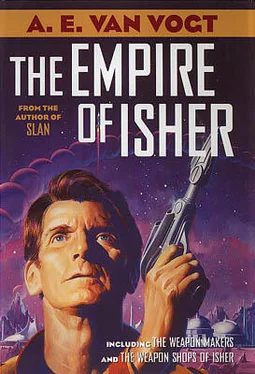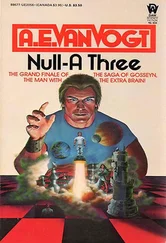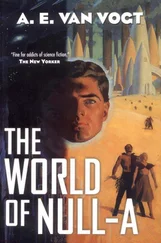Cayle’s face hardened. “Could I borrow yours?” he asked tautly. “I’ll show those skunks.”
The girl shrugged. “Weapon shop guns are tuned to individuals,” she said. “Mine wouldn’t work for you. And, besides, you can use it only for defense. It’s too late for you to defend yourself.”
Cayle stared gloomily down through the myradel floor. The beauty below mocked him. The splendor of the towns that appeared every few minutes merely deepened his depression. Slowly the desperation came back. It seemed to him suddenly that Lucy Rail was his last hope and that he had to persuade her to help him. He said, “Isn’t there anything that the weapon shops do besides sell guns?”
The girl hesitated. “We have an information center,” she said finally.
“What do you mean—information? What kind of information?”
“Oh, everything. Where people were born. How much money they have. What crimes they’ve committed or are committing. Of course, we don’t interfere.”
Cayle frowned at her, simultaneously dissatisfied and fascinated. He had not intended to be distracted but for years there had been questions in his mind about the weapon shops.
And here was somebody who knew.
“But what do they do?” He said insistently. “If they’ve got such wonderful guns why don’t they just take over the government?”
Lucy Rail smiled and shook her head. “You don’t understand,” she said. “The weapon shops were founded more than two thousand years ago by a man who decided that the incessant struggle for power of different groups was insane and the civil and other wars must stop forever. It was a time when the world had just emerged from a war in which more than a billion people had died and he found thousands of people who agreed to follow him. His idea was nothing less than that whatever government was in power should not be overthrown. But that an organization should be set up which would have one principal purpose—to ensure that no government ever again obtained complete power over its people. A man who felt himself wronged should be able to go somewhere to buy a defensive gun. You cannot imagine what a great forward step that was. Under the old tyrannical governments it was frequently a capital offense to be found in possession of a blaster or a gun.”
Her voice was taking on emotional intensity now. It was clear that she believed what she was saying. She went on earnestly. “What gave the founder the idea was the invention of an electronic and atomic system of control which made it possible to build indestructible weapon shops and to manufacture weapons that could only be used for defense. That last ended all possibility of weapon shop guns being used by gangsters and other criminals and morally justified the entire enterprise. For defensive purposes a weapon shop gun is superior to an ordinary or government weapon. It works on mind control and leaps to the hand when wanted. It provides a defensive screen against other blasters, though not against bullets but since it is so much faster, that isn’t important.”
She looked at Cayle and the intentness faded from her face. “Is that what you wanted to know?” she asked.
“Suppose you’re shot from ambush?” Cayle asked.
She shrugged. “No defense.” She shook her head, smiling faintly. “You really don’t understand. We don’t worry about individuals. What counts is that many millions of people have the knowledge that they can go to a weapon shop if they want to protect themselves and their families. And, even more important, the forces that would normally try to enslave them are restrained by the conviction that it is dangerous to press people too far. And so a great balance has been struck between those who govern and those who are governed.”
Cayle stared at her in bitter disappointment. “You mean that a person has to save himself? Even when you get a gun you have to nerve yourself to resist? Nobody is there to help you?”
It struck him with a pang that she must have told him this in order to show him why she couldn’t help him.
Lucy spoke again. “I can see that what I’ve told you is a great disappointment to you. But that’s the way it is. And I think you’ll realize that’s the way it has to be. When a people lose the courage to resist encroachment on their rights, then they can’t be saved by an outside force. Our belief is that people always have the kind of government they want and that individuals must bear the risks of freedom, even to the extent of giving their lives.”
There must have been an expression on his face, a reflection of the strain that was in him. For she broke off. “Look,” she urged, “let me alone for a while to think over what you’ve told me. I won’t promise anything. But I’ll give you my decision before we reach our destination. All right?”
He thought it was a nice way of getting rid of him. He stood up, smiling wryly, and took an empty seat in an adjoining salon. Later, when he glanced in the doorway, the corner where she had been sitting was unoccupied.
It was that that decided him. She was evading the problem. He had been tensing again and now he climbed to his feet and headed for the forward bar.
He came upon Seal from behind and struck him a cruel blow on the side of the face. The smaller man was plummeted out of his stool and knocked to the floor. His two companions jumped to their feet. Cayle kicked the nearer man in the groin, mercilessly. The fellow moaned, and staggered, clutching his stomach.
Ignoring him, Cayle dived at the third man, who was trying to get his gun from a shoulder holster. He struck the gambler with the full weight of his body, and from that moment the advantage was his. It was he who secured the gun, struck savagely with it at the man’s groping hand and drew blood and a cry of pain, followed by a mad scramble to break free.
Cayle whirled, in time to see Seal climb to his feet. The man rubbed his jaw and they stood staring at each other. “Give me back my money,” said Cayle. “You picked the wrong man.”
Seal raised his voice. “Folks, I’m being robbed. This is the most barefaced—”
He stopped. He must have realized that this was not a matter of being clever or reasonable. He must have realized it for he suddenly held up his hands and said quickly, “Don’t shoot, you fool! After all, we didn’t shoot you.”
Cayle, finger on trigger, restrained himself. “My money?” he snapped.
There was an interruption. A loud voice said, “What’s going on here? Put up your hands, you with the gun.”
Cayle turned and backed toward the near wall. Three ship’s officers with portable blasters stood just inside the door, covering him. Not once during the argument that followed did Cayle lower his own gun.
He told his story succinctly and refused to surrender. “I have reason to believe,” he said, “that the officers of a ship on which such incidents can occur are not above suspicion. Now, quick, Seal, my money.”
There was no answer. He sent a swift look to where Seal had been—and felt a sense of emptiness.
The gambler was gone. There was no sign of the two henchmen.
“Look,” said the officer who seemed to be in command, “put up your gun and we’ll forget the whole matter.”
Cayle said, “I’ll go out of that door.” He motioned to his right. “When I’m through there I’ll put up my gun.”
That was agreeable and Cayle wasted no time. He searched the ship, then, from stem to stern, but found no sign of Seal or his companions. In a fury, he sought out the captain. “You scum, you,” he said coldly, “you let them get away in an airboat.”
The officer stared at him coolly. “Young man,” he said finally, satirically, “you are discovering that the ads are right. Travel is very educational. As a result of being aboard our ship, you have become more alert. You have discovered within yourself qualities of courage hitherto unsuspected. Within the space of a few hours, in short, you’ve grown up a little. The value of that in terms of survival cannot be estimated. In terms of money, you’ve paid a small amount. If you should desire, at some future date to pay an additional gratuity, I shall be happy to give you my address.
Читать дальше











